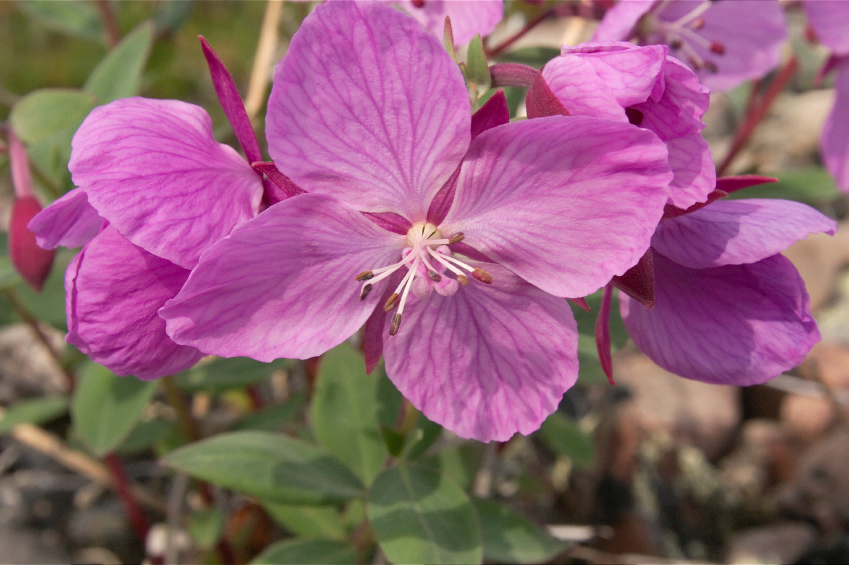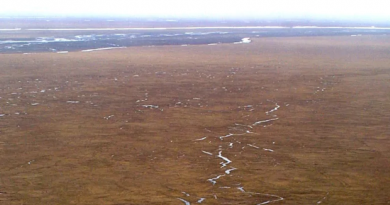Arctic plants to be studied in Nunavut

A team of botanists is headed next week to a remote area in the Canadian territory of Nunavut to try to fill gaps in the knowledge about plant life in the Far North.
The month-long expedition to the Coppermine River area in western Nunavut’s Coppermine River is part of a multiyear project to catalog the plants growing in the North American Arctic, from Alaska’s North Slope to the eastern stretches of Arctic Canada.
The Nunavut trip is the fourth on-the-ground survey in the project, which is being led by the Canadian Museum of Nature in Ottawa and conducted in cooperation with scientists from the University of Alaska Fairbanks’ Museum of the North and other institutions. The project, expected to last at least five years, aims to catalog about species of 800 vascular plants, according to the Canadian Museum of Nature, which maintains decades worth of plant specimens.
Area poorly studied
Even though plant life is generally sparser in the Arctic than in most parts of the world, there is still rich biodiversity that needs to be identified and understood, said Jeff Saarela, a museum botanist who is one of the project leaders.
“There are still things to find everywhere,” he said.
That part of Nunavut is important to explore, Saarela said, because it one of the area where the boreal forest meets the tundra and is thus is likely to hold a variety of plant species. “That whole large area is really poorly studied,” he said.
As plants spread north, pushed by a warming climate and possibly other means, it is important to get a baseline information about what is growing on the tundra, in the forest and in the transition zone between, he said. “That’s one of the obvious areas where this kind of change is going to happen first,” he said.
Surprising discoveries
Though the team headed to Nunavut numbers four, there are 10 to 15 scientists working on the project, Saarela said.
Saarela and his colleagues have already made some surprising plant discoveries.
They spotted balsam poplars far north in Canada’s Northwest Territories, in a place where those trees were previously undocumented. Balsam poplars do exist above treeline elsewhere, notably on Alaska’s North Slope, but the four stands discovered at the edge ofTuktut Nogait National Park were “a long way from the treeline,” previously thought to be the limit for growth of balsam poplars in the Canadian Arctic. Saarela detailed the findings in a study published in 2012 in the journal Arctic.
Discoveries made during trips to Victoria Island turned up plant species previously known only on mainland Canada, Saarela said. And last year the botanists found foxtail barley on southern Baffin Island, a place not known previously to be home to that plant. It was likely imported to the island, possibly by humans or possibly by birds, he said.
The ongoing plant-surveying project has not yet discovered any new-to-science plants in the Arctic, Saarela said. But a colleague did make such a discovery on Canada’s Banks Island several years ago. The late Laurie Consaul found a previously unknown species of grass, similar to some found in Arctic Russia and Alaska, and documented the discovery in a study published in 2008 in the journal Novon.
Related stories from around the North:
Canada: Mushroom rush in Yukon, Canada, Radio Canada International
Finland: Farmers eye weather as harvest season approaches in Finland, Yle News
Sweden: Growing tomatoes in Sweden’s Far North, Radio Sweden
United States: Foraging for Alaska’s wild plants, Alaska Dispatch



